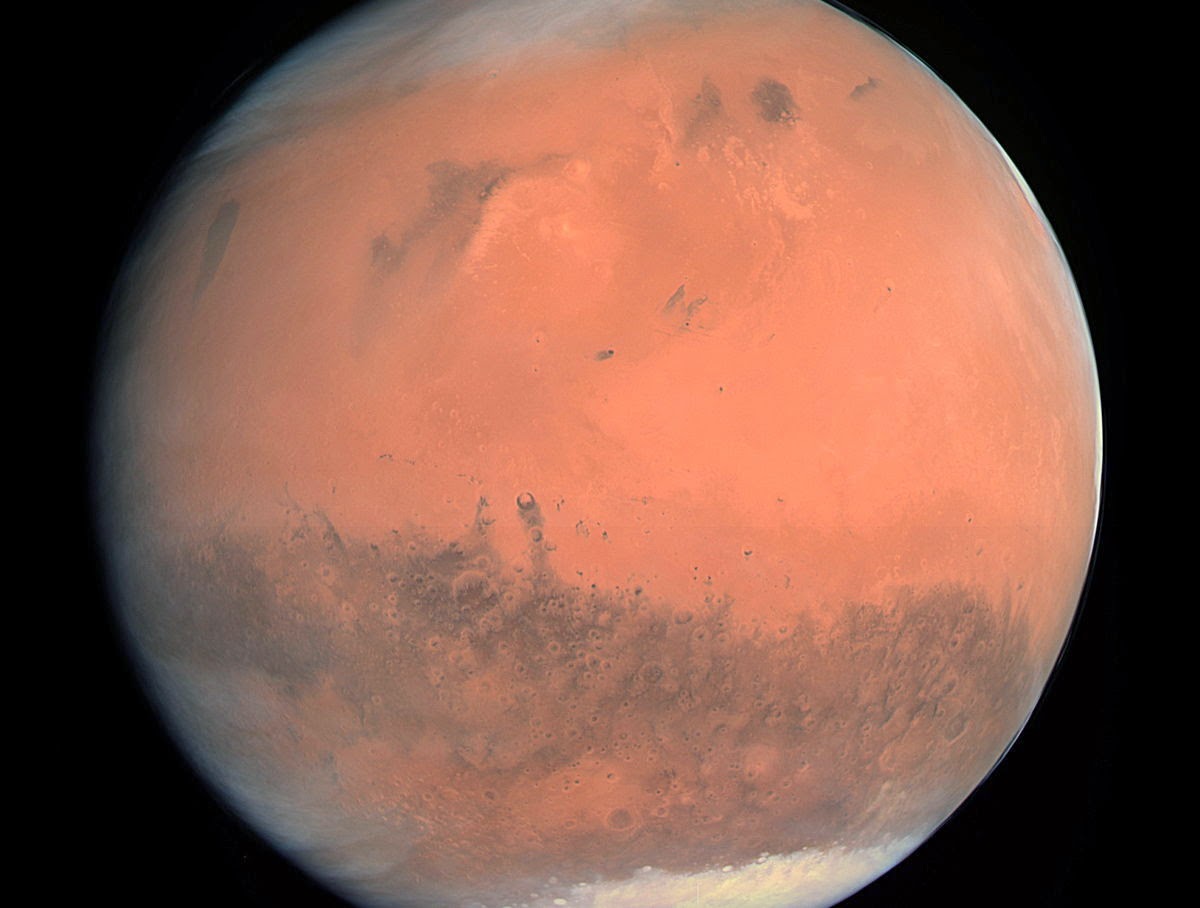A manned mission to Mars could feasibly launch sometime in the 2030s, according to a panel of experts.
Credit: ESA
Mars may possess a stark and austere beauty, but a manned Red Planet mission will likely not be easy on the eyes.
Recently, scientists have begun realizing that spaceflight can cause serious and perhaps permanent vision problems in astronauts.
NASA researchers are working hard to understand the issue, which could present a major hurdle to mounting manned missions to Mars and other faraway destinations.
"This is one that we don't yet have a good handle on, and it can be a showstopper," Mark Shelhamer, chief scientist for the NASA Human Research Program at Johnson Space Center in Houston, said last week during a presentation with the agency's Future In-Space Operations (FISO) working group.
The human body suffers in the microgravity environment of space. For example, without effective countermeasures — i.e., vigorous weight-bearing exercise — astronauts' muscles atrophy and their bones shed calcium, becoming more and more brittle over time.
Spaceflight can also affect the eyes. Researchers have known this for decades, but they're just now beginning to appreciate the gravity of the situation.
"Over the last 40 years there have been reports of visual acuity impairments associated with spaceflight through testing and anecdotal reports," a 2012 NASA report about spaceflight-related vision problems states.
"Until recently, these changes were thought to be transient, but a comparison of pre- and postflight ocular measures have identified a potential risk of permanent visual changes as a result of microgravity exposure."
Credit: ESA
Mars may possess a stark and austere beauty, but a manned Red Planet mission will likely not be easy on the eyes.
Recently, scientists have begun realizing that spaceflight can cause serious and perhaps permanent vision problems in astronauts.
NASA researchers are working hard to understand the issue, which could present a major hurdle to mounting manned missions to Mars and other faraway destinations.
"This is one that we don't yet have a good handle on, and it can be a showstopper," Mark Shelhamer, chief scientist for the NASA Human Research Program at Johnson Space Center in Houston, said last week during a presentation with the agency's Future In-Space Operations (FISO) working group.
The human body suffers in the microgravity environment of space. For example, without effective countermeasures — i.e., vigorous weight-bearing exercise — astronauts' muscles atrophy and their bones shed calcium, becoming more and more brittle over time.
Spaceflight can also affect the eyes. Researchers have known this for decades, but they're just now beginning to appreciate the gravity of the situation.
"Over the last 40 years there have been reports of visual acuity impairments associated with spaceflight through testing and anecdotal reports," a 2012 NASA report about spaceflight-related vision problems states.
"Until recently, these changes were thought to be transient, but a comparison of pre- and postflight ocular measures have identified a potential risk of permanent visual changes as a result of microgravity exposure."








No comments:
Post a Comment